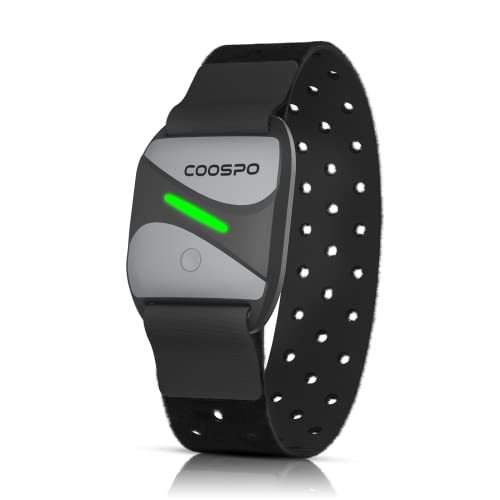HRV (heart rate variability) monitors have gained popularity in recent years for tracking and analyzing heart rate patterns to provide insights into our overall health and well-being.
In this article, we’ll delve into what HRV monitors are, how they work, their effectiveness, and the pros and cons of using them.
Key Takeaways
- HRV monitors measure the variable time intervals between consecutive heartbeats.
- Photoplethysmography (PPG) technology is used to retrieve and analyze this data.
- Studies indicate that HRV monitors can provide insights into cardiovascular risks and stress levels.
- With the proper use and quality devices, HRV monitors can provide accurate data to support overall wellness.
What exactly is an HRV Monitor?
HRV or Heart Rate Variability monitors are devices designed for personal health monitoring. They can come in various forms such as wearable devices or mobile apps. The primary function of HRV monitors is to measure heart rate variability, which refers to the minor differences in time intervals between successive heartbeats. This heart rate data offers valuable insights into the human body’s physiological state.
Utilizing advanced sensors, HRV monitors detect minute changes in our heartbeats, thus capturing evidence of the normal fluctuation in time noticing the complex interplay of our sympathetic and parasympathetic nervous systems. They record these beat-to-beat alterations providing a comprehensive overview of our stress levels, recovery rates, and overall fitness—a critical tool to support a balanced lifestyle. For a detailed perspective on top-of-the-line HRV monitors, this product roundup can be a good resource.
How Does an HRV Monitor Work?
The working mechanism of HRV monitors involves photoplethysmography (PPG) – a tested technology that gauges changes in blood volume within our capillaries. The sensors within the HRV monitor send out light that penetrates our skin; the reflected light captured can detect vital signs like heartbeat rates. This feedback enables the tracking of slight variations within each heartbeat, providing valuable data for our autonomic nervous system condition and the stress we might be under.
Essentially, by analyzing the differences between each heartbeat, HRV monitors can quantify our heart rate variability. All of this is done while ensuring that the collected health data is safe and meets standard privacy policies. To understand more about how HRV monitors can be beneficial for your health, read this informative article.
Assessing the Effectiveness of HRV Monitors
Several scientific studies have explored the effectiveness of HRV monitors in understanding heart rate variations. A substantial part of the evidence suggests that HRV monitoring can provide valuable insights into an individual’s risk of cardiovascular diseases. It can be a great tool for tracking stress levels and evaluating the overall health status of our body.
However, it is to be noted that a few research pieces have shown some variations in the accuracy and reliability of these monitors. A multitude of factors like the individual build, the quality of the HRV monitor device, and adherence to the appropriate use of the device can significantly impact the accuracy of the measurements. These factors underline the importance of careful consideration while choosing an HRV monitor and proper guidance for maximum benefits.
Pros and Cons of Utilizing HRV Monitors
Like any other tool or device, using HRV monitors comes with its advantages and disadvantages. On the positive side, HRV monitoring can indeed offer beneficiaries valuable insights into their stress levels, recovery status, and athletic performance. It serves as an advanced and personal health tracking tool, thereby enabling users to identify specific patterns, keep track of their progress, and make required adjustments in their lifestyle or training methods based on personalized data.
Nevertheless, various factors can lead to errors like movement artifacts or poor device quality, which can affect the recorded readings. Moreover, it is essential to remember that HRV monitoring is not a diagnostic tool but a supplement to professional advice. So while HRV monitors can offer insights, users should leverage these health statistics as one part of the bigger picture when it comes to maintaining well-being.
Conclusion
In summary, HRV monitors can be effective tools for monitoring heart rate variability and providing insights into our stress levels and overall well-being. While research supports their usefulness, it is important to consider the limitations and potential accuracy issues associated with HRV monitors.
Ultimately, the effectiveness of HRV monitors depends on various factors, including the quality of the device, proper usage, and individual differences. So, while HRV monitors can be informative and helpful, it’s important to approach them as one piece of the overall puzzle of maintaining good health and well-being.
Disclosure: Some of the links in this article may be affiliate links, which can provide compensation to me at no cost to you if you decide to purchase. This will help grow this site and help more people. Thank you for making a difference!
| Technology | Photoplethysmography (PPG) |
|---|---|
| Function | Gauges changes in blood volume within capillaries |
| Process | Sends light through the skin to detect vital signs |
| Benefit | Quantifies heart rate variability for autonomic system analysis |




